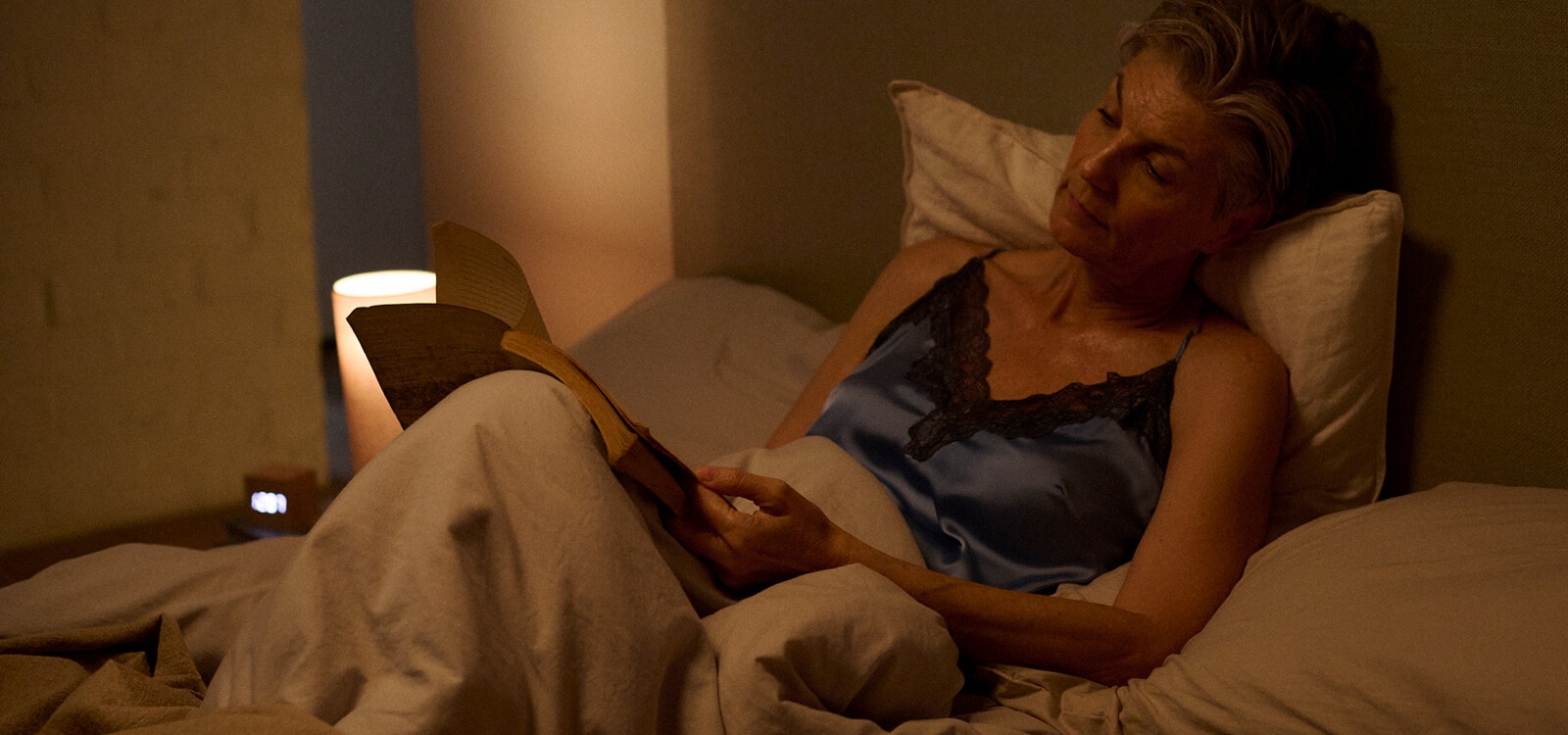is a life stage that every woman goes through, it is most commonly associated with the changes to our body, our periods and fertility. It's a well-known part of female life, but did you know that it’s actually made up of two different stages? The first phase is called perimenopause and begins several years before menstruation ceases completely. This is followed by postmenopause, the phase that starts after the final menstrual period.
In this guide, we’ll take a closer look at the two stages—pre-menopause and post-menopause—including the signs, symptoms, and changes to watch for, as well as what you can expect during each stage.
What is perimenopause?
Perimenopause is often confused with premenopause, which refers to the entire span of reproductive years before any menopause-related symptoms begin. In contrast, perimenopause is the transitional phase leading up to , when hormonal balance gradually changes. It is characterized by declining progesterone and fluctuating estrogen levels, which can lead to a range of physical and emotional symptoms.
Perimenopause typically begins several years before menopause, though the timing and symptoms vary from person to person. You may start noticing signs of perimenopause in your 40s, or even earlier in some cases.
Perimenopause signs and symptoms
Here are some of the changes you might experience:
- Irregular periods
- Heavier and more frequent menstruation
- Risk of iron deficiency
- Worse premenstrual syndrome
- Irritability, anger, anxiety, depression
- Weight gain
- Hot flushes
- Heart palpitations
- Mood changes
- Breast tenderness
- Tiredness
- Trouble sleeping
- Sleep deprivation
- Headaches
- Lower sex drive
- Urinary urgency
What is the menopause?
is defined as the point in time of the last menstrual period. Since this can only be confirmed retrospectively, menopause is considered to have occurred when menstruation has been absent for twelve consecutive months. Menopause can occur at different ages, but the average age is around 51 years.
Post-Menopause signs and symptoms
During the time that you stop having periods, you can expect to experience many of the same symptoms as during the perimenopause stage. Below, we’ve compiled some of the most common issues that occur post-menopause:
- Hot flushes
- Night sweats
- Difficulty sleeping
- Lower sex drive
- Problems with memory and concentration
- Vaginal dryness and/or discomfort during sex
- Headaches
- Tearfulness
- Lack of motivation
- Heart palpitations
- Joint stiffness
- Reduced muscle mass
- Recurring urinary tract infections
- Frequent urination and urgency
- Urinary leakage
Many of these symptoms can be relieved or prevented through lifestyle changes or with support from your GP. For urgency and urinary , there are products available that can make everyday life easier.

TENA LIGHTS LINERS
Fast-absorbing protection for your sensitive skin
If you sometimes experience little leaks, but you have sensitive skin and you aren’t quite sure how to make it work for you, this could be what you’ve been looking for.
What can happen post-menopause?
The ovarian follicles continue to produce estrogen even after the last menstrual period, but in reduced amounts. Production gradually declines, and about five years after , the body maintains a consistently low level of estrogen. Dry and fragile mucous membranes in the vaginal area are a common issue, and for many women, this discomfort can persist throughout life if left untreated.
As a result of certain factors, including a lower level of oestrogen, there is a chance you may experience an increased risk for certain health conditions, including osteoporosis, heart disease, and changes in the vagina and bladder. Keeping healthy and active positively impact the chances some of these conditions occurring, but every woman is different, so speak to your doctor to learn what you can do to keep on top of things.
If you have any concerns during any stages of the menopause, visit your GP for advice. They may be able to offer you hormone replacement therapy (HRT) medication, other medicines, or tips on how to alter your lifestyle to form new habits that will help as you go through menopause. For more information, check out our menopause support page.









